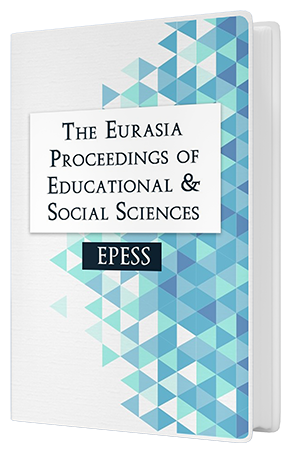Investigation of Parent Views on Distance Synchronic Education Applied to Preschool Children in the Pandemia Process
DOI:
https://doi.org/10.55549/epess.995252Keywords:
Covid-19, Distance education, Synchronous education, Preschool education, Parent viewAbstract
During the Covid-19 pandemic, the virus epidemic that spread all over the world and affected everyone seriously affected education. This pandemic process has brought about social, emotional, psychological, and cognitive changes in individuals. It is seen that children experience the effects of the process that affects each developmental period more intensely. It is thought that parental views and situation evaluations on how curfews and distance education affect children are important. In this study, the views and expectations of parents regarding the education process of preschool students who receive distance synchronous education during the pandemic process were examined. The study was created in the descriptive research model and the descriptive method was adopted. The research group consists of 163 parents whose children are educated in preschool during the pandemic process in the schools affiliated to the Ministry of Education in the province of Ankara in the 2020-2021 academic year. In order to collect data, 'Parent Opinion Questionnaire for Preschool Distance Education' and semi-structured interview technique were used. Quantitative data obtained from the measurement tool were analyzed through descriptive statistics and qualitative data were analyzed and analyzed by coding technique. According to the research findings, the parents found the pre-school teaching practices useful and stated that the children were motivated by the distance education in the schools during the pandemic process. In addition, they emphasized that keeping the activity durations short makes learning easier. They stated that they experienced problems such as lack of material support in the distance education process, motivation and concentration in children, and expressed the problems experienced in distance education. It is thought that these results will be a preliminary exemplary evaluation for educators in the creation of new education models designed such as remote synchronous or hybrid in the upcoming period.Downloads
Published
Issue
Section
License
Copyright (c) 2021 The Eurasia Proceedings of Educational and Social Sciences

This work is licensed under a Creative Commons Attribution-NonCommercial-ShareAlike 4.0 International License.
The articles may be used for research, teaching, and private study purposes. Any substantial or systematic reproduction, redistribution, reselling, loan, sub-licensing, systematic supply, or distribution in any form to anyone is expressly forbidden. Authors alone are responsible for the contents of their articles. The journal owns the copyright of the articles. The publisher shall not be liable for any loss, actions, claims, proceedings, demand, or costs or damages whatsoever or howsoever caused arising directly or indirectly in connection with or arising out of the use of the research material. All authors are requested to disclose any actual or potential conflict of interest including any financial, personal or other relationships with other people or organizations regarding the submitted work.




